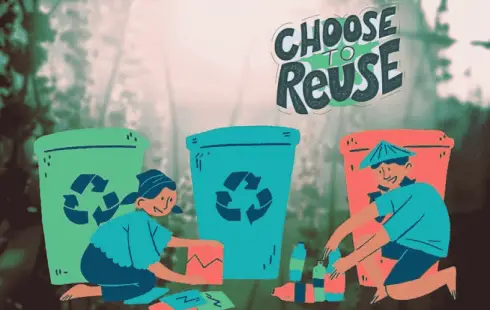
Custom T-Shirts: Last-Minute Gifts They'll Actually Love
Section: Arts
 Munich stands as a shining example of efficient and eco-conscious waste management. Spearheaded by the Waste Management Corporation of Munich (Abfallwirtschaftsbetrieb München, AWM), the city's waste disposal system prioritizes citizens and the environment. Over the years, it has successfully transformed into a resource-efficient, closed-circle economy. In this article, we delve into Munich's waste management strategies, exploring how they promote responsible waste disposal and recycling practices, while encouraging waste avoidance for a greener, sustainable future.
Munich stands as a shining example of efficient and eco-conscious waste management. Spearheaded by the Waste Management Corporation of Munich (Abfallwirtschaftsbetrieb München, AWM), the city's waste disposal system prioritizes citizens and the environment. Over the years, it has successfully transformed into a resource-efficient, closed-circle economy. In this article, we delve into Munich's waste management strategies, exploring how they promote responsible waste disposal and recycling practices, while encouraging waste avoidance for a greener, sustainable future.
The Grey Residual Waste Bin: The first step in Munich's waste management journey is the grey residual waste bin. This bin is designated for non-recyclable waste, which cannot be reused or repurposed. Items such as nappies, sanitary towels, plastic bin bags, coated or dirty paper, plastic film, and cigarette butts find their place here. However, it's crucial to remember that electronic or hazardous waste like paints, energy-saving lamps, and batteries must never be discarded in this bin. Instead, residents must take them to local hazardous waste collection points for proper disposal.
The Blue Paper Bin: Munich takes recycling seriously, and the blue paper bin is a testament to this commitment. Residents are encouraged to deposit paper waste that can be recycled into new paper products. This includes newspapers, magazines, flattened cardboard boxes, envelopes, clean paper bags, and more. By segregating paper waste, Munich minimizes its environmental impact and conserves valuable resources.
The Brown Organic Waste Bin: Organic waste is a valuable resource in Munich's waste management system. The brown organic waste bin is designated for organic materials that will undergo a transformative process. Fruit and vegetable waste, coffee filters, tea bags, meat, bones, garden waste, and more find their way into this bin. Through the dry fermentation system, this organic waste is converted into electricity and potting soil, reducing landfill waste and contributing to renewable energy production.
Bulky Waste Management: Managing bulky waste effectively is essential to keep Munich's streets clean and its citizens satisfied. Bulky waste comprises items that are too large to fit into regular waste bins, such as furniture, refrigerators, and old bicycles. Residents can dispose of up to 2 sq m of bulky waste per day at local civic waste collection points, free of charge. Moreover, specific items like used clothing, construction waste, electronic waste, garden waste, and wood can also be brought to these collection points for proper disposal and recycling.
Packaging Waste Initiatives: Munich aims to reduce its environmental footprint further through innovative packaging waste initiatives. Metal, glass, and plastic packaging are targeted for recycling. Over 1000 recycling points across the city make it convenient for residents to participate actively in recycling efforts. Additionally, large plastic packaging that doesn't fit into regular bins can be brought to designated civic waste collection points for proper disposal.
Embracing Waste Avoidance: The most effective waste management strategy is waste avoidance. Munich encourages its citizens to embrace this principle through various services and initiatives:
Munich's Waste Management Corporation (AWM) has shown the world that sustainable waste management is achievable with a citizen-focused approach and innovative recycling initiatives. Through waste separation, recycling, and waste avoidance strategies, Munich's waste management system has emerged as a model for other cities to follow. As citizens continue to embrace responsible waste disposal practices, Munich moves steadily towards a greener and more sustainable future.
Link to AWM original article

Section: Arts

Section: Arts

Section: Business

Section: Business

Section: Arts

Section: Health

Section: Arts

Section: News

Section: News

Section: Arts
Health Insurance in Germany is compulsory and sometimes complicated, not to mention expensive. As an expat, you are required to navigate this landscape within weeks of arriving, so check our FAQ on PKV. For our guide on resources and access to agents who can give you a competitive quote, try our PKV Cost comparison tool.
Germany is famous for its medical expertise and extensive number of hospitals and clinics. See this comprehensive directory of hospitals and clinics across the country, complete with links to their websites, addresses, contact info, and specializations/services.
One of the most beautiful squares transforms into a summer stage every year for two days. The Gärtnerplatz Open-Air features a free music and cultural program across three stages, as well as street food from local vendors. On Saturday, the main stage at Gärtnerplatz offers something for everyone,...



No comments yet. Be the first to comment!